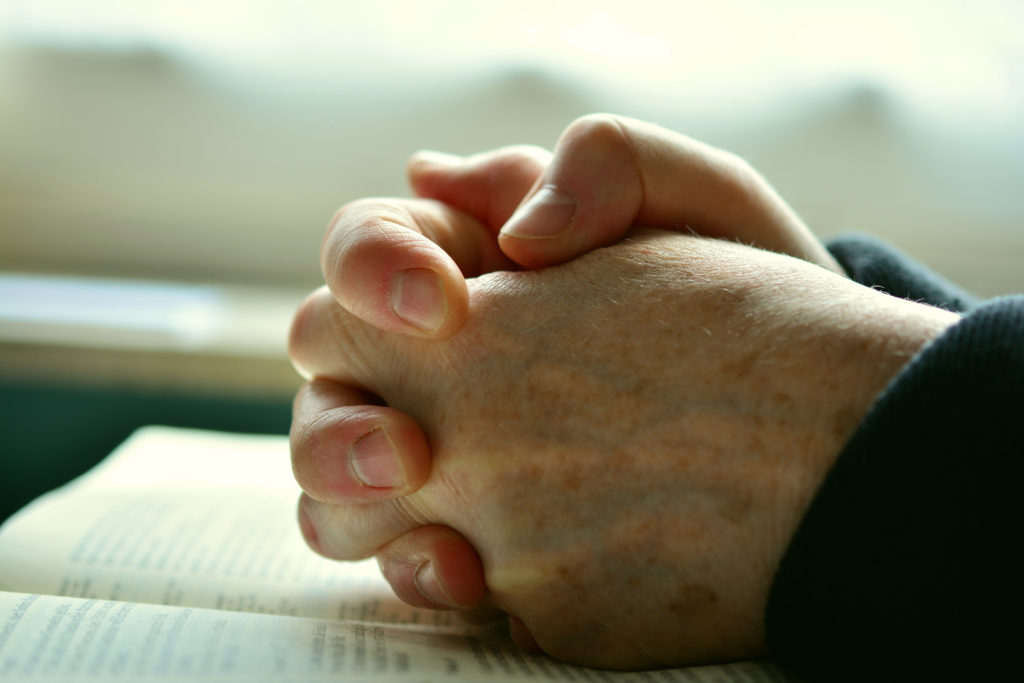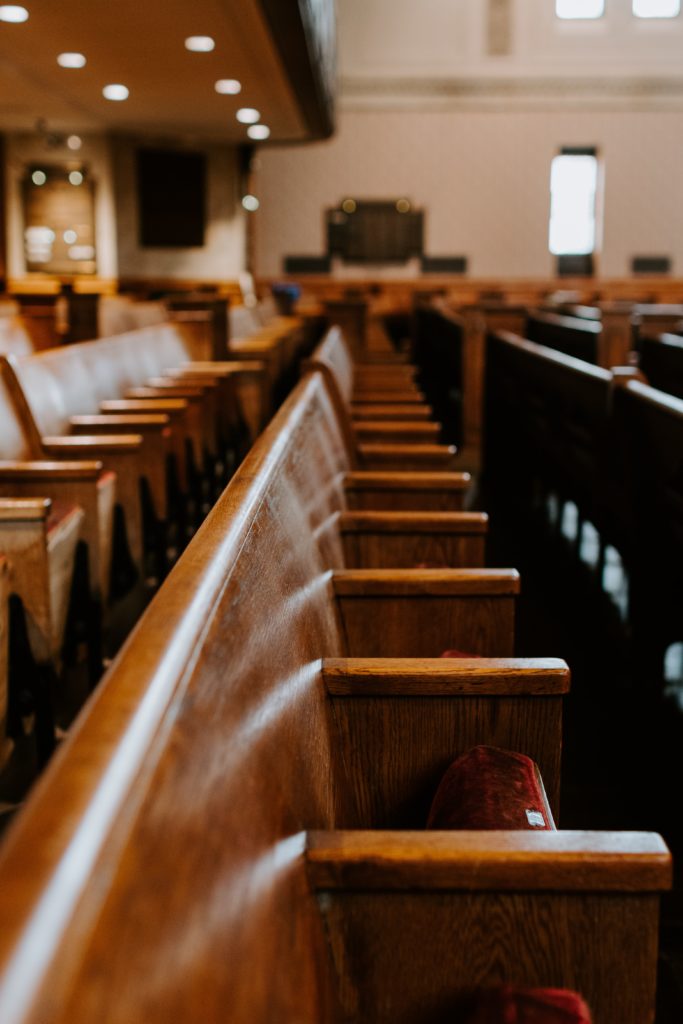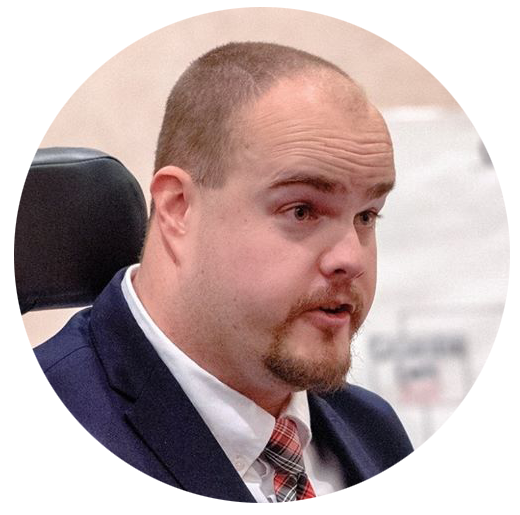
Image adapted from Wikicommons by DhLeaks44 / CC BY-SA 4.0
“So Help Him God?:
The Case of the Prayerful Juror”
Matthew P. Cavedon
Mother Teresa said that “listening is the beginning of prayer.” One Florida juror listened in prayer and heard the Holy Spirit telling him to vote not guilty. So he did. Did he violate his oath to decide the case based only on the law and the facts? The trial judge and an Eleventh Circuit majority said that he did. But they wrongly set faith and reason at odds with each other.
It is not every day that a case on criminal law and religion generates 116 pages of federal appellate opinions, but then, United States v. Corrine Brown is no ordinary case. Ms. Brown was elected to twelve terms in Congress as one of Florida’s first three Black representatives since the Reconstruction Era, representing communities running from Jacksonville to Orlando. Her legal trouble began in 2016, when she was indicted for “solicit[ing] over $800,000 in donations to a supposed charitable organization, only to use that organization as a personal slush fund.” More than a quarter of the money ended up going to “events hosted by Brown or held in her honor, including a golf tournament, lavish receptions during an annual Washington conference and the use of luxury boxes for a Beyonce concert and an NFL game between the Washington Redskins and Jacksonville Jaguars.” Not to mention, auto work and several beach vacations. A jury convicted her on eighteen corruption-related charges the following year, and she was sentenced to five years in prison.
But the jury that convicted her was not the same one that began the trial: Juror 13 was removed by the judge after telling his fellows that “[t]he Holy Spirit told [him]” Ms. Brown was not guilty. Concern about Juror 13 began the day after deliberations started. Another juror told the courtroom deputy that Juror 13 “had been speaking about ‘Higher Beings’ in connection with Brown’s name.” The judge called the complaining juror in, who reported Juror 13’s words: “‘A Higher Being told me Corrine Brown was Not Guilty on all charges’. [Juror 13] later went on to say he ‘trusted the Holy Ghost’.”

The judge first responded that “pray[ing] for guidance” is “permissible and ‘to be respected.’” But he then decided to question Juror 13 about whether he would obey his duties as a juror. The judge asked, “Are you having any difficulties with any religious or moral beliefs . . . bearing on or interfering with your ability to decide the case on the facts presented and on the law as I gave it to you in the instructions?” The juror responded negatively. He elaborated that he had “been following and listening to what has been presented and making a determination from that, as to what I think and believe.” When queried about his religious statements, Juror 13 explained, “[I]n listening to all the information, taking it all down, I listen for the truth, and I know the truth when the truth is spoken.” He then said that his Father in Heaven had given him guidance about how to proceed. When asked how he reconciled this with deciding the case based only on the evidence, he said, “I followed all the things that you presented. My religious beliefs are going by the testimonies of people given here, which I believe that’s what we’re supposed to do, and then render a decision on those testimonies, and the evidence presented in the room.” He also confirmed telling other jurors at the start of deliberations that the Holy Spirit had told him Ms. Brown was not guilty.
The judge then removed Juror 13, finding that he was “injecting religious beliefs that are inconsistent with the instructions of the court, that this case be decided solely on the law as the court gave it to the jury and the evidence in the case.” The judge distinguished Juror 13’s receiving divine directives from non-problematic “praying for guidance . . . [to] be enlightened.” The reconstituted jury then convicted Ms. Brown.
Ms. Brown appealed, claiming error in Juror 13’s removal. The Eleventh Circuit issued its 2-1 judgment upholding her conviction on January 9. The Court’s opinions show very different understandings of how prayer relates to reason, and so reach opposite conclusions about whether the judge made the right call.
Judge Robin Rosenbaum wrote the lead opinion, joined by U.S. District Court Judge Anne Conway. Her analysis turns on distinguishing religious from secular reasoning, with only the latter able to properly guide a jury. “If the right to a jury trial means anything,” she begins, “it means a right to a verdict based on the evidence.” Jurors are presumed to base their decisions on the law and the facts; indeed, the majority opinion says a juror can only be removed if it is shown “beyond a reasonable doubt” that he is judging improperly. But Judge Rosenbaum holds that Juror 13 surpassed that very high standard. He did so by believing that God told him “what [he] was . . . to do in relation to what [he] heard” during the trial. Judge Rosenbaum finds that the trial judge could reasonably interpret this as meaning “that Juror 13 understood himself to have received directions from the Holy Spirit to acquit Brown on all charges presented at the trial, irrespective of an independent assessment of the evidence.”
Judge Conway wrote a brief concurrence. She emphasizes that this case was more about trial judges’ discretion in assessing jurors than about any broader issues of religious freedom or prayer.
Despite the majority’s decision, Judge Rosenbaum acknowledges that there is another “reasonable construction” of Juror 13’s words about his thought process. She concedes that he could have meant that “he was basing his verdict on the evidence,” just like he was supposed to.
This point – that religion and reason can work in tandem – drives Judge William Pryor’s dissent. He begins by quoting the very oath Juror 13 and his fellows swore: “Do each of you solemnly swear that you will well and truly try the case now before this court and render a true verdict, according to the law, evidence, and instructions of this court, so help you God?” (emphasis added). He says that Juror 13 was dismissed not because he disobeyed this oath, but “because he apparently meant it.” He interprets Juror 13’s words as indicating that he was “he was basing his decision on the evidence” and considered this “his religious duty.” When questioned about how he was approaching the case, Juror 13 “unambiguously denied that his religious beliefs prevented him from [deciding based on the law and facts]. On the contrary, he repeatedly and specifically affirmed . . . that he was basing his decision on the evidence.” He even connected his religious convictions and legal duties in explaining himself to the judge. Far from violating his oath, Juror 13 adhered to all of it by “superadd[ing] a religious sanction to what would otherwise be his official duty, and . . . bind[ing] his conscience.”

Judge Pryor finds no problem in Juror 13’s claim that he received divine guidance during his prayers. If, as Judge Rosenbaum and the trial judge say, there is nothing wrong with asking for God’s guidance, then how could Juror 13 be criticized “for believing God answered”? Nothing Juror 13 said indicated that he was hearing things audibly that other people could not, or that his rational faculties were absent. Judge Pryor canvasses spiritual writers to argue that all Juror 13 did was “seek clarity of mind, insight, and discernment from that interior place where [his] conscious mind makes contact with what [he] believes is the divine.” The majority’s exclusion of this as even a fairly plausible interpretation of Juror 13’s words harms not only him and Ms. Brown, but the rights of other Americans who understand prayer conversationally – including many Black Protestants and Evangelical Christians.
Who has the better of the argument? Judge Pryor. Of course there are some instances where supposed divine revelations undermine juries’ search for logical truth. Take the Texas judge who “went into the jury room after he was informed that the jury reached a verdict and told them . . . that God told him Defendant was innocent, and urged them to reconsider their verdict.” (They convicted anyway.)
But Juror 13 fits into another category altogether. He listened to the evidence. Thought carefully about it. Prayed for help doing so. And believed he received that help.
At every turn, he said that reason and faith were reinforcing each other in his search for the truth. This should have been proof of his adherence to his oath. Not of the opposite.
Whatever God’s will may have been for the trial, Ms. Brown was convicted following Juror 13’s wrongful removal. But some prayers for her have apparently met with a more positive answer. She was released from prison in April – two years early – due to concerns about COVID-19.
Wrote her pastor: “#GodDelivers.” ♦

Matthew P. Cavedon is a criminal defense attorney in Gainesville, GA. He graduated from Emory University in 2015 with a law degree and masters of theological studies.
Recommended Citation
Cavedon, Matthew P. “So Help Him God?: The Case of the Prayerful Juror.” Canopy Forum, September 4, 2020. https://canopyforum.org/2020/09/04/so-help-him-god-the-case-of-the-prayerful-juror/

